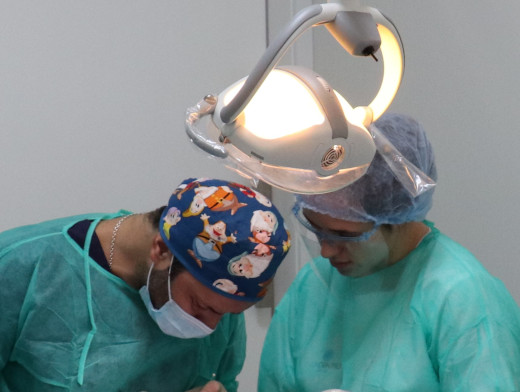
Dental Implants aftercare and a good maintenance will have an influence on the lifespan of the treatment.
Maintenance and hygiene are the key factors in preserving this fixed treatment. Unfortunately, patients do not always give adequate importance to hygiene and maintenance.
Dental Implants Aftercare – take care of your implants
Dental implants can last decades or even a lifetime. This time factor depends on proper maintenance and hygiene. For example, a car, washing machine, and glasses all need revision and maintenance. If carefully and periodically checked, the chances of lasting for a long time are higher. Dental implants also need regular care. Precautions and maintenance will help them to last longer. Together with maintenance, we give particular emphasis to gum tissue, and natural and artificial teeth.
Problems related to lack of hygiene
This is exactly the same as with natural teeth. If you do not brush frequently, there will be an accumulation of bacterial plaque, which damages the implants. This excessive accumulation of bacteria may cause the gum disease known as periimplantitis.
What is periimplantitis?
It is an inflammation in the gum tissues and bone surrounding the implant. If not treated in time, it can expose the implant due to the lower bone density. In severe cases, it can also lead to loss of the implant. The main cause of this infection is deficient oral hygiene.
How to treat periimplantitis?
The treatment eliminates bacteria by removing the bacterial plaque. The best prevention is proper hygiene and regular dentist appointments.
What can I do to preserve my dental implants?
- Hygiene Just as our natural teeth need good oral hygiene to avoid gum diseases and tooth decay, so do the implants. Brush them several times a day, mainly after meals and before bedtime. Use soft toothbrushes and brush the implants exactly the same as natural teeth. Ideal brushing includes circular movements that will help clean the prostheses and gums. Use dental floss and a water pick.
- Regular visits to the dentist are very important. During the consultation, the dentist will check bone density, fixed prosthesis pressure on the titanium rod, and whether that pressure is properly adjusted.
What are the appropriate products for dental implant hygiene?
- Use the appropriate toothpaste recommended by your dentist.
- Use mouthwash bought at a pharmacy and prescribed by your dentist. Mouthwash will prevent bacterial plaque accumulation. Please remember that excessive or inadequate use may cause corrosion or stain your teeth.
- Use interdental brushes to remove food remains and bacteria in poorly accessible areas. These plastic coated wire toothbrushes are very easy to use. Using this toothbrush will ensure good hygiene and durability of the implant.
- Brush every mouth region, such as the palate (roof of the mouth), tongue, and gums. Many people ignore these regions, but bacteria have a tendency to accumulate and develop in these areas.
- Do not forget to floss. You can find different types and brands of dental floss at any pharmacy. They are fundamental to remove food from poorly accessible areas and to complement general dental hygiene.
- For good hygiene, a water pick is essential. The pressure from the water pick will remove all theaccumulated remains between the gums and prosthesis. You can find water picks for sale at your local pharmacy.
- Good hygiene will improve your implant lifespan by at least 30 years and even up to a lifetime. Dental implants need the same care as natural teeth. Therefore, implants need to be properly cleaned to increase their durability.
Follow these tips and you will be able to maintain your artificial teeth for a long time.
VitaCentre Medical Reference- Reviewed by VitaCentre Dental Clinic Staff on August 29, 2022

